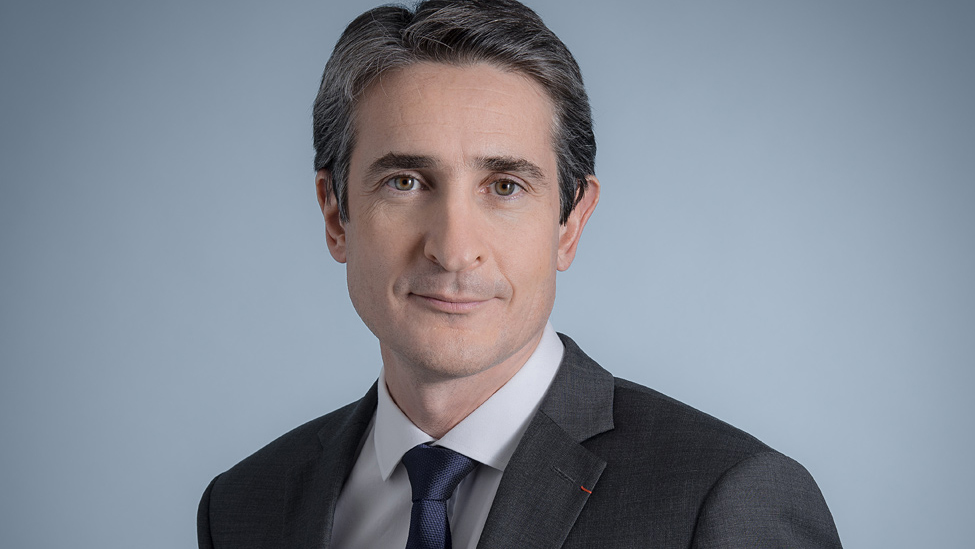
Thales’s CEO comments on sustainable fuels, green algorithms and smart data.
Thales Group is a partially state-owned French multinational that designs and builds aerospace and defence electrical systems. Its chairman and CEO, Patrice Caine, spoke to The Banker’s sister platform Sustainable Views during the International Economic Forum of the Americas’ Conference of Paris. He discussed the role that technology can play in reducing carbon emissions, the importance of smart, rather than big, data, and the need for a dedicated ‘ESG (environmental, social and governance) investor day’.
Q: How do you see Thales’s role in creating a greener world?
A: In the aviation sector, where we operate, there are many promising technologies such hydrogen, sustainable aggregation fuel (SAF; a sustainable alternative to jet fossil fuels). At Thales, we look at how we can contribute to reducing energy consumption.
We do not make airplane engines, but we are a world leader in air traffic management systems and we can help optimise flight trajectories. At the moment, these are decided 24 hours before departure and any unexpected weather event, or simply traffic congestion, can be destabilising. By optimising flight paths in real time, you can save 10% of fuel consumption. By the end of this decade, the aviation sector is expected to emit a total 900 million tonnes of carbon. With flight-path optimisation you could save 100 million tonnes of that.
By the end of this decade, the aviation sector is expected to emit a total 900 million tonnes of carbon. With flight-path optimisation you could save 100 million tonnes of that
Q: That’s not a negligible amount. Why isn’t flight optimisation done in real time already?
A: It’s a bit frustrating to see that traction on this hasn’t been very strong. The end-user is the airline carrier, which could choose to go much faster in this direction. Airlines are dealing with many other challenges, including the effects of the pandemic. I am confident that once things improve and travel resumes to normal levels, there will be more attention to this solution, which complements others like new engines and new fuels powering planes.
Q: Technology is useful only if it is trusted. Is this why you created an ethical code for technology?
A: Some digital technologies have raised concern, and for good reasons in some cases.
Thinking about artificial intelligence (AI), we have created a concept of True AI, where True stands for transparent, understandable and ethical; as well as environmentally friendly, it helps to set guidelines for engineers.
We also want to design AI algorithms that are as effective in their outcome as the existing ones, but that need less computing power. Similarly, in terms of data, when we use big analytics we pour massive amounts of data into a management system and wait for the algorithm to become ‘smarter’. Instead, we can be smarter at the outset and inject the right amount of data — that’s the difference between big data and smart data. This way you use less computing power, which means less energy and less carbon emissions. This technology already exists, but we want to improve it by improving the efficiency of the algorithm.
Q: This October, you held your first ESG investor day — why the need to talk to investors about ESG only?
A: It responds to questions and requests coming from our many stakeholders asking us about what we do in this area. They want to know what our commitment is in terms of ESG. These questions come not only from their shareholders, but also their customers, partners and employees, who all want to see Thales bring a genuine contribution to this area. That investor day was created, of course, for investors, but it was followed by other stakeholders.
We are a tech company, so we’re full of engineers. We are rational people who believe in science. That was an opportunity for us to explain, factually, what we do, how we can improve, and the journey that we have designed to deal with climate change, as well as with other challenges.
My conviction is that these ESG indicators, which we are disclosing, will have the same importance as economic indicators. And I am sure that in a matter of a months or possibly years, you will have ‘ESG warning’ [statements], as well as the ‘profit warning’ declarations that listed companies issue in view of deteriorating earnings.


